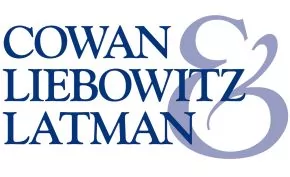In these turbulent times, brands are turning to cause marketing initiatives to assist charities. Before your company launches a campaign to help others, you should consider whether you are creating a legally regulated commercial co-venture (CCV).
Commercial Co-Venture Laws
More than half of the fifty states have commercial co-venture laws that impact commercial entities and their cause marketing promotions. These laws regulate how to market a charitable campaign to consumers. Most of them require a contract between the charity and the commercial entity, some even dictating the contents of such contracts. Some states (e.g., Alabama, Hawaii, Illinois, Massachusetts, Mississippi, and South Carolina) require registration and/or bonding with the state. Some statutes have requirements for a final accounting relating to your charitable promotion.
Advertising Disclosure Requirements
Most of the CCV statutes mandate certain advertising disclosures, including the expected portion of the sales price going to the charity, percentage of gross proceeds or other consideration, or per unit disclosures. Many of the states banded together to issue multistate guidance on CCV campaigns in 1999. In addition, the Better Business Bureau has issued its own guidance for charity accountability, including suggestions regarding commercial co-ventures. In 2012, New York's Attorney General went beyond the multistate guidelines to promulgate his own disclosure "best practices." The New York State guidelines' goals are to help consumers determine easily how their purchase affects the charity and to promote transparency in advertising.
State Enforcement
The Attorney General of each state enforces the CCV statutes through fines, but in some instances there are potential criminal consequences. Investigations by state attorneys-general have been ongoing since the early 1990's. For example, in 1999, Yoplait ran a charitable sales promotion to benefit the Breast Cancer Research Foundation with a capped donation. Its yogurt products, however, did not reveal the cap, simply promising consumers that the company would donate 50 cents a lid. The Georgia Attorney General investigated, and Yoplait's parent company General Mills made an additional $63,000 donation to represent the lid collection efforts of Georgia customers. The company also changed the wording on its Yoplait container to reflect a guaranteed minimum.
Private Enforcement
Some statutes also authorize private rights of action, including class actions. Class action plaintiffs may also utilize deceptive advertising statutes to target CCV campaigns. In 2011, for instance, a class action alleged that Lady Gaga engaged in false and misleading business practices because she advertised that "all proceeds" from the sale of rubber wristbands would benefit tsunami and earthquake relief funds in Japan. The complaint alleged that, in fact, a portion of the $5 price per band went to the seller, along with shipping charges.
Takeaways
Before you launch your cause marketing campaign:
- Hold off on social media donation announcements or purchase/donation offers until you understand the CCV statutes.
- Work with legal counsel to determine if you can promote your brand's charitable initiatives to customers without having to comply with the complex CCV requirements.
- Consider what disclosures may be required to post in bricks and mortar establishments or in online stores.
- Make sure your customers understand clearly how their purchases may impact the size of any donation you are making to charity.
- Consider the tax implications of your CCV campaign.
Originally published June 9, 2020
The content of this article is intended to provide a general guide to the subject matter. Specialist advice should be sought about your specific circumstances.

